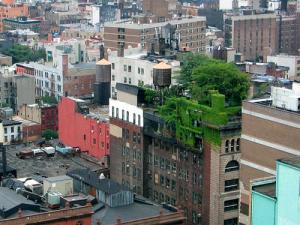Guidelines
How do we decide what practical steps to take and how do we judge our progress? Since Living Lightly is not a universal prescription, we will all have to generate our own, tailored action plans. There are, however, some key criteria and indicators of progress we can use:
Energy: Reduced energy demand, more efficient use of energy, cleaner and safer sources of energy.
Water: Reduced water demand, more efficient use of water, protection of water quality and sources.
Waste: Design that eliminates waste creation, reduced material demands, more effective and durable use and re-use of materials and products, elimination of harmful and useless byproducts.
Material intensity: Less material-intensive lifestyles where needs are met and rewards are produced more through services and creative and artistic endeavours than through consumption of disposable and short-lived products.
Low-carbon living: Design and re-prioritize in order to reduce the generation of carbon dioxide and other greenhouse gases.
Biodiversity: Increase biodiversity through habitat regeneration, choices of food, gardening and landscaping, as well as elimination of hazardous substances, including buy accutane canada online pesticides, cleaners, cosmetics and medication.
Elegance/simplicity: Seek solutions that are simple and effective and pursue lives that emphasize quality of experiences over speed, change and quantity.
Durability: Seek products, homes, equipment, etc. that are designed for durability and reliability and can be repaired locally.
Closed-loop material flows: Design systems and products to use either biological materials that can be readily reabsorbed or reused in nature, or technical materials that are made by humans and capable of being captured and reused in perpetuity.
Whole systems approach: Plan, design and manage with the big picture in mind, never making decisions in isolation.
Stewardship: Take responsibility for your decisions and impacts, and aim to move from “less bad†to “more goodâ€Â.
Resilience: Work to develop skills, practices and lifestyles that can withstand crises and shocks with minimal disruption, and that contribute to community resilience.
Living Lightly is not:
Denial: A failure to recognize and acknowledge the state of society and the ecosphere.
Negligence: A failure to act upon this knowledge, or a conscious effort to suppress it.


